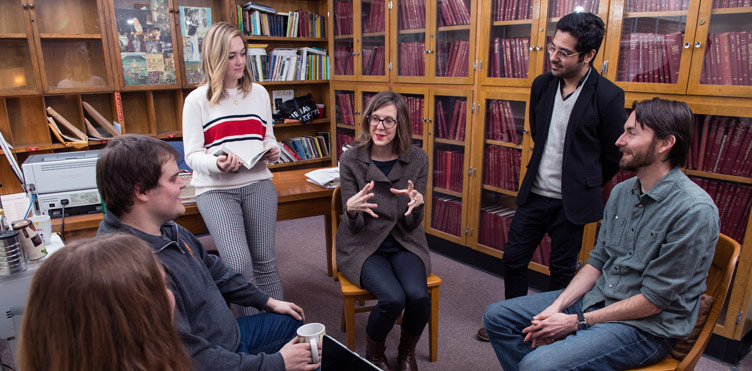Faculty of Arts
UNB Fredericton
Graduate studies in English
A friendly, supportive learning environment
Our graduate program offers small class sizes and personal guidance from nationally acclaimed professors and supervisors.
Application deadlines
Dec. 1 (for PhD) and Jan. 8 (for MA).
- Late applications cannot be considered.
- International applicants should apply by the relevant deadline to have the best chance of meeting immigration requirements.
Areas of study
- Gender and sexuality in literature (MA and PhD)
- MA (creative writing)
- MA (academic)
- PhD (creative writing)
- PhD (academic)
Graduate courses Course timetable
For information about 2025-2026 course offerings, contact LNOBLE@unb.ca.
We have active researchers working in a broad range of fields, including early modern, restoration and 18th-century, romantic, and Victorian British literature, Canadian literature, American literature, Indigenous literature, post-colonial literature, women's and gender studies, queer theory, literary and cultural theory, ecocriticism and animal studies, drama and film.
The department boasts talented practitioners and instructors in all major genres of creative writing--fiction, poetry, playwriting and screenwriting--as well as expertise in non-fiction and travel writing.
Our graduates, in both academic and creative fields, have gone on to publish their work in esteemed journals and as books.
How to apply
Find UNB’s application process and requirements at the School of Graduate Studies.
Graduate policies
The School of Graduate Studies (SGS) graduate regulations are the official source for students, faculty and staff concerning all aspects of graduate programming.

